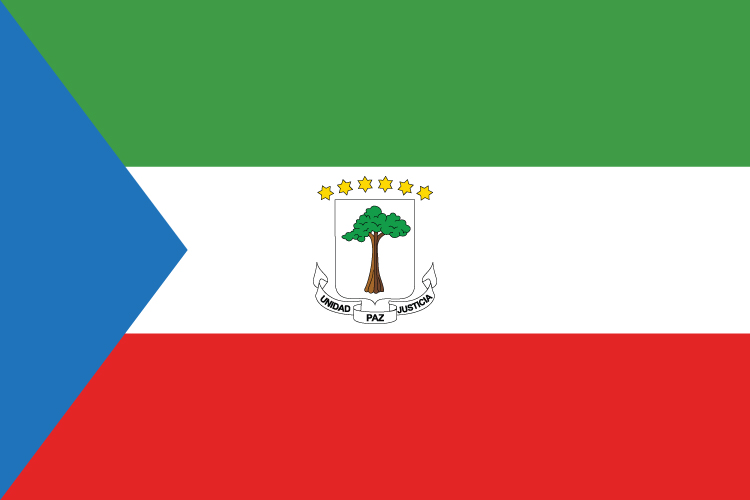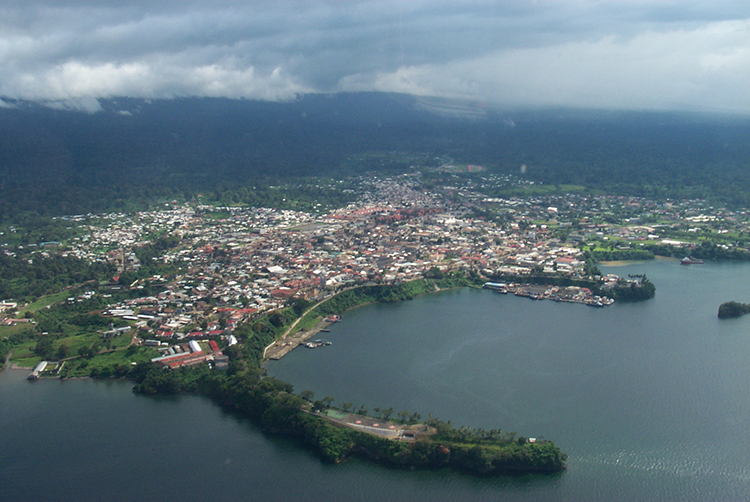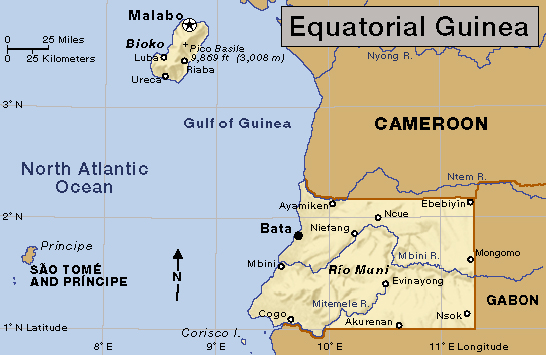Equatorial Guinea 50
October 12, 2018
Today, October 12, the Republic of Equatorial Guinea celebrates the 50th anniversary of its independence in 1968. Equatorial Guinea consists of a territory on the west coast of Africa, plus five offshore islands. Most of the nation’s people live in the mainland territory, Río Muni, which lies between Cameroon and Gabon. The largest island, Bioko, is in the Gulf of Guinea, about 100 miles (160 kilometers) northwest of Río Muni. The other islands—Corisco, Elobey Chico, Elobey Grande, and Annobón—are southwest of Río Muni. Prior to independence, Equatorial Guinea was a Spanish territory and colony.

The flag of Equatorial Guinea includes a crest with a silk-cotton tree, six stars representing the nation’s mainland and five islands, and a banner reading Unidad, Paz, Justicia (Unity, Peace, Justice). Credit: © Loveshop/Shutterstock
President Teodoro Obiang Nguema Mbasogo led golden jubilee celebrations in Malabo, the nation’s capital on Bioko. (A new capital called Ciudad de la Paz—City of Peace—is under construction in Río Muni, and parts of the government already operate from there.) Celebrations also took place in Bata, the nation’s largest city, and other cities and towns freshly “cleaned and smartened” for the anniversary.
Portuguese sailors landed on Annobón in 1471 and later claimed Annobón, Bioko, and part of the nearby mainland. Spain took control of these territories in the mid-1800’s and made them a colony in 1959. In 1968, shortly after Equatorial Guinea gained independence, Francisco Macías Nguema seized power as president and dictator. After a decade of violent rule, a group of army officers led by Obiang Nguema overthrew Macías in 1979. The group established a military government with Obiang Nguema as president. He has since been reelected numerous times against little opposition.

Malabo, the capital of Equatorial Guinea, lies on Venus Bay on the island of Bioko. Credit: Ipisking (licensed under CC BY-SA 3.0)
About 80 percent of Equatorial Guinea’s people live in Río Muni. Most of the people in Río Muni are members of the Fang ethnic group. The Fang are closely related to the people of neighboring Cameroon and Gabon. Most of the people of Bioko belong to the Fernandino or Bubi ethnic groups.



